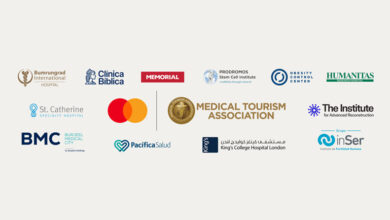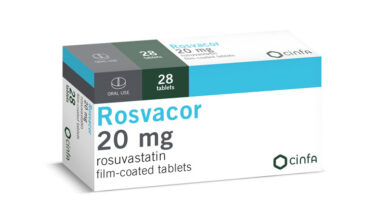Pocramé, the start-up at the forefront of the fight against the coronavirus and all its variants
Pocramé, the start-up at the forefront of the fight against the coronavirus and all its variants
The MephiLab, a real mini medical analysis lab, gives a result in just 22 minutes and is developed by the Pocramé company at the IHU-Méditerranée Infection. Two analysis and infection prevention tools have witnessed unprecedented success in 2020 within hospitals in the South region, faced with the Covid-19 pandemic. A look back at a Provençal success story which has mainly benefited Provençal people for the time being! POCRAMÉ, is short for Point Of Care RAoult MÉditérannée.
The year 2020 will undoubtedly remain associated with the Covid-19 pandemic in the minds of most people around the world. For Pocramé, a start-up incubated since 2014 at the Institut Hospitalo-Universitaire (IHU) Méditerranée Infection, 2020 will also be remembered as the year when its business boomed, with sales exceeding 3 million euros for the first time. This success is obviously due to the sudden Sars-Cov-2 outbreak all over the world and the exponential needs for microbiological tests induced by this pandemic. Because the only two products marketed (for the moment) by Pocramé meet the current needs. Without the “IHU bashing” following the media coverage of its iconic boss, Didier Raoult, these innovations could have even made it possible to accelerate the deployment of tests throughout the country in the spring.
A mini mobile medical analysis laboratory
The first, called MephiLab, is a mini medical analysis laboratory on its own. Capable of identifying a myriad of pathogens (viruses, bacteria, fungi, parasites) from a simple swab, it obviously recognizes Sars-Cov-2 by PCR, except that it gives results in just 22 minutes, for an estimated cost of around 10 euros per test.
“Mephilab, a mini medical analysis laboratory on its own. Capable of identifying a myriad of pathogens from a single swab , it recognizes Sars-Cov-2 by PCR ,and capable to gives results in just 22 minutes”

Used by the IHU’s healthcare teams, there is a good reason that MephiLab was used in Marseille in terms of tests. For a long time, this hospital specializing in infectious diseases was even the only French enterprise capable of mass testing and delivering results in a few hours. But this was not enough to open up national prospects for MephiLab, their deployment during the crisis having been limited to a handful of medium-sized enterprises in Bouches-du-Rhône, Vaucluse and Hautes-Alpes (1). However, this machine could have rendered great service, when a large number of doctors across the country wanted to subject their patients to a Covid-19 test and the ministry claimed that it was technically impossible, if not unnecessary.
The CMA / CGM was not mistaken. The 3rd largest shipping company in the world has equipped around sixty of its container ships for two years, in order to be able to establish a reliable and precise diagnosis when a crew member or a passenger falls ill at sea.
Because the Marseille-based company obviously cares about the health of its employees and customers, and also because such a tool aboard a ship makes it possible to resort to a helicopter evacuation or a medical deviation only with full knowledge of the facts. When you know the cost of an additional day at sea for a container ship, CMA / CGM’s decision also seems to be the result of economic thinking. Billed between 5,000 and 12,000 euros each depending on the options, a misery for state-of-the-art medical equipment, a MephiLab can indeed provide the shipowner with substantial savings. Not to mention the cost of a deviation or helicopter winching in the open sea.
How does this mobile lab work?
The secret of MephiLab? It has a PCR analyzer, a device capable of determining several hundred or even several thousand germs in a biological sample.
Thus, it embodies a diagnostic strategy developed over many years at the IHU, namely, the syndromic approach. It consists of listing a patient’s symptoms, comparing them with the known symptoms of one or more diseases and looking in the patient’s sample for pathogens that correspond to these diseases.
A technique which makes it possible to know very quickly and almost certainly what exactly the patient is suffering from. In order to secure test results, each MephiLab, whether on land or aboard a ship, is connected to the IHU, where a biologist can continuously check the data sent by these mobile laboratories.
Fighting against hospital-acquired infections

The second tool developed by Pocramé, the MephiBox, also achieved considerable success in 2020, with several thousand units sold during the year and more than 450 units ordered to be delivered. Installed in the corridor of a hospital ward, at the door of a hospital room or a nursing home, the MephiBox allows healthcare workers to permanently have disposable protective equipment against infections (gloves, masks, glasses, gowns, etc.) and to manage them in the best safety conditions for them, for inpatients and for their visitors.
Developed with the aim of preventing hospital-acquired infections, which are diseases contracted in hospitals where pathogens are inevitably more present, the MephiBox is very useful in the control of Sars-Cov-2 and its dissemination in hospitals or in nursing homes for the elderly.
The MephiLab and the MephiBox are both manufactured in the South of France, not far from Marseille. Regarding the former, the PCR machine which is at its core, is manufactured at the IHU, before being mounted on a mobile chassis at ACA Plastiques in Signes (Var), in a body conceived and designed by Idéact in Géménos (Bouches-du-Rhône). As for the MephiBox, they involve the same subcontractors, generating new jobs.















